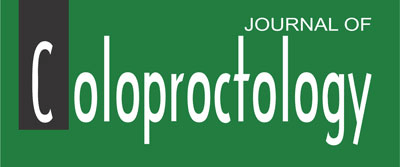Abstract
Objective
To evaluate the health locus of control, self-esteem, and body image in patients with an intestinal stoma.
Method
A descriptive, cross-sectional, analytical study conducted at the pole of the ostomates of the city of Pouso Alegre. The study was approved by Research Ethics Committee of Universidade do Vale do Sapucaí. Opinion: 620,459. Patients: 44 patients with an intestinal stoma. Four instruments were used: a questionnaire with demographic and stomatologic data, the Health Locus of Control Scale, the Rosenberg Self-Esteem Scale/UNIFESP-EPM, and the Body Investment Scale. Statistics: Chi-square, Pearson, Mann-Whitney and Kruskal-Wallis tests. p < 0.05 was determined.
Results
The majority of patients were over 70 years, 16 (36.4%) were female, 30 (68.2%) were married, 31 (70.5%) were retirees, 31 (70.5%) had an income of 1-3 minimum wages, 32 (72.7%) did not practice physical activity, 18 (40.9%) had an incomplete elementary education, and 35 (79.5%) participated in a support or association group. 33 (75%) participants received the stoma because of a neoplasia; and 33 (75%) had a definitive stoma. In 36 (81.8%) participants, the type of stoma used was a colostomy, and 22 (50%) measured 20-40 mm in diameter; 32 (72.7%) participants used a two-piece device. With regard to complications, there were 29 (65.9%) cases of dermatitis. The mean total score for the Health Locus of Control Scale was 62.84; for the Rosenberg Self-Esteem Scale, 27.66; and for the Body Investment Scale, 39.48. The mean scores for the dimensions internal, powerful others, and chance of the Health Locus of Control Scale were 22.68, 20.68, and 19.50, respectively. With respect to the Body Investment Scale, for the dimensions body image, body care, and body touch, the mean scores were 11.64, 11.00, and 13.09, respectively.
Conclusion
In this study, the participants showed changes in self-esteem and body image and also showed negative feelings about their body. Ostomized individuals believe that they themselves control their state of health and do not believe that other persons or entities (physician, nurse, friends, family, god, etc.) can assist them in their improvement or cure and, in addition, believe that their health is controlled by chance, without personal or other people's interference.
Keywords
Intestinal stoma; Quality of life; Self-esteem; Body image; Locus of control
